20 Years FSFE: Interview with Reinhard Müller
In 2021, the Free Software Foundation Europe turns 20. This is a moment that we want to use to celebrate our community with a series of publications. In our second publication we interview Reinhard Müller who has contributed as a volunteer since 2002 in various roles from local activities to the European core team.
Reinhard Müller claims that his T-shirt folding capabilities are legendary. Without denying this fact, anyone who has worked with Reinhard on behalf of the FSFE can confirm that his dedication to Free Software and the FSFE is legendary as well. Reinhard joined the FSFE as a volunteer in its first year and met in person with the volunteers behind the FSFE's very first booth at FOSDEM in 2002. In the years following, Reinhard held many different positions inside the FSFE community. Reinhard became a founding member of the Austria country team, joined the FSFE's General Assembly as an official member and even helped to run the organisation for several years as Financial Officer and part of the FSFE's Executive Council. In all these positions Reinhard helped shape the organisation of the FSFE and still does, so much that many people are surprised when they hear that Reinhard is a volunteer and not a paid staffer of the FSFE.
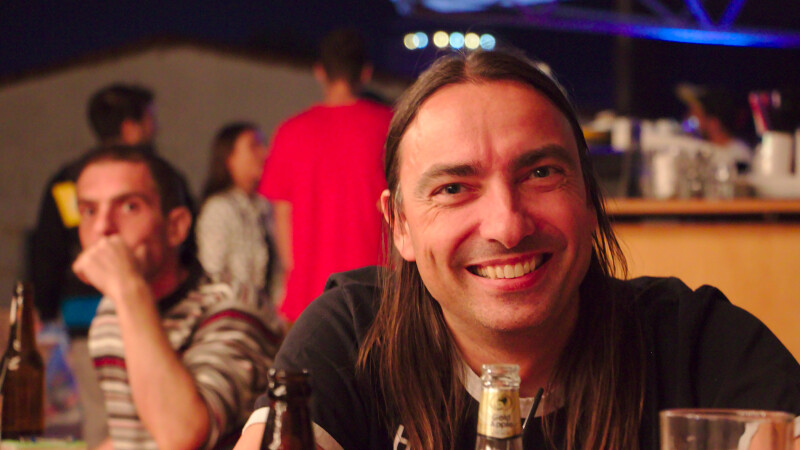
Reinhard Müller socialising at the General Assembly 2015.
Besides his official positions, Reinhard never stopped contributing. That means listing all of his contributions in one webpage basically seems impossible, but we try to mention a few: Reinhard engaged as a local volunteer in the Vienna group and the FSFE's country team Austria, organised and ran countless number of booths in Austria, in Germany and his favorite one every year at FOSDEM. Apart from these local engagements, Reinhard is always eager to shape the FSFE's European engagement by participating in the European core team discussions and decisions. And although Reinhard already had a lot of responsibility with the FSFE's yearly bookkeeping and communication with donors as our financial officer, he additionally spent his free time with countless contributions to the website, including his constant optimisations of our self-written static website generator and the automatisation of information material orders. Not forgetting to mention that in all his contributions and positions, he always aimed at making himself replaceable at the same time by maintaining comprehensive and understandable documentation of his work and hand-overs.
Finally, anyone who has met Reinhard before will agree that his most obvious and visible contributions are his highly social skills. Be it as the good spirit behind the booth, during intense and funny conversations after the booth is closed or deep at night when Reinhard performs one of his self-written songs about the FSFE: Thank you very much for being with the FSFE in the last 20 years and we hope you stay with us in the next 20 years!
Interview with Reinhard Müller
You were looking for opportunities to get involved in the Free Software movement when you saw the announcement that the Free Software Foundation Europe was going to be founded. What made you curious about the FSFE and do you remember the first contact you had with the FSFE? How did it evolve from there?
Reinhard Müller: The thing about the FSFE which attracted me most was that there was something being started in Europe. Back 20 years ago, the whole Free Software community looked very US-centric to me, and I thought that an European organisation would make it easier for me to get involved.
At some point I started to write occasional emails to the public discussion list and contributing my view about topics like whether it should be possible to make money from Free Software, or whether the FSFE should take money from companies. Funny how some discussions seem to come up again and again even after 20 years...
Back 20 years ago, the whole Free Software community looked very US-centric to me, and I thought that an European organisation would make it easier for me to get involved.
My first in-person contact to the FSFE was at FOSDEM 2002, where I met Volker Dormeyer at the FSFE booth and had a nice conversation with him. I'd never have thought that this would be the start of such a long tradition - I've been with the FSFE at each FOSDEM ever since, except for the virtual one this year.
Very soon I also started to join the discussions and physical meetings of the FSFE's Austrian associate organisation, from which the Austrian country team of the FSFE evolved later.
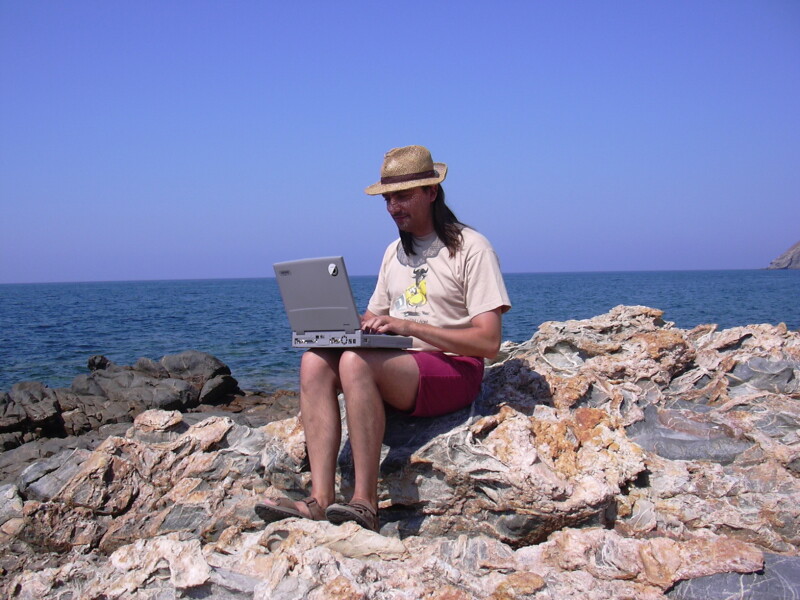
For Reinhard Müller it is sometimes hard to decide what is the higher source of energy: spending some time at the beach or run a booth for the FSFE.
FSFE: Although you never got paid from the FSFE, from 2007 to 2017 you have been taking over the responsibility of the financial officer at the FSFE, and
you still keep contributing heavily in our financial team. What are the
financial challenges for a volunteer driven European NGO?
I think the biggest challenge is the contradiction between the desire on
the one hand to plan ahead for the association's activities, and thus
also its expenditure, and the impossibility on the other hand to predict
the future development of incoming donations.
At the FSFE, we are fortunate to be able to alleviate this problem in
two ways: firstly, our numerous supporters ensure that we receive
regular and predictable payments with their monthly or annual
contributions, and secondly, we have been able to build up financial
reserves over the past years that allow us to compensate for
fluctuations. Both factors allow us to act freely and without regard to
any interests of our corporate donors.
FSFE: What is the most important thing so far that you learnt from your work at the FSFE?
Don't think in weeks or months, but in years, if not decades. Enjoy your
successes, but don't overestimate their long-term impact. Don't
overestimate the impact of setbacks, either. And always plan your
activities in a way that they can survive the point at which you
personally lose interest in them.
Ever since it has been started, the "I love Free Software" campaign has been my favorite.
FSFE: And what is your personal favorite activity, campaign or message that
the FSFE has done or is still doing?
Ever since it started, the "I love Free Software" campaign has
been my favorite. It sends a thoroughly positive message, it helps to
remind people of the benefits of free software, and it offers everyone a
low-threshold and easy way to participate.

Reinhard Müller participating in his favorite campaign.
FSFE: Many people know you from your happy face behind FSFE booths all around
Europe, especially at FOSDEM. What is so fun about it that you travel hundreds
of kilometers to spend a weekend at an FSFE booth?
It's the people I meet there. With a trip to such an event, I get the
possibility to meet and talk in person with exactly those people I work
with over the internet during the rest of the year, and I also meet
people less tightly associated with the FSFE who just come to the booth,
buy a T-shirt and tell us that we're doing great work. Both are an
essential source of energy and motivation for me for the work I do in
the FSFE.
FSFE: From all the moments behind the FSFE booth, can you tell us one of the
stories that still warm up your heart or that always makes you laugh or smile
when you remember it?
Once at FOSDEM, when I still was rather new in the FSFE, Alan Cox, a
well-known leading Linux kernel developer, happened to stand near our
booth, and when somebody asked him about the latest news regarding
software patents, he pointed to our booth and said: “ask them, they know
that stuff better than me”. At that moment, I felt incredibly proud
being a part of the FSFE, and I think it somehow helped me shape my
vision of this organisation: let all the excellent Free Software
developers in this world do their work and save their backs from the
political or legal issues they don't want to mess around with.
However, the most beautiful memories are more related to the hours
around the actual events: spending the LinuxTag social event sitting in
the lawn, playing the guitar and singing, taking the metro after FOSDEM
with 10 FSFE volunteers and 30 "I love Free Software" balloons, playing
the piano in the Cafe Kafka in Brussels, or just spending insanely long
evenings in restaurants, bars, and hotel lobbies with extensive discussions about how to change the world to the better.
FSFE: As a last question, what do you wish the FSFE for the next 20 years?
May the FSFE always keep a healthy balance between professionalism and
openness to volunteer contributions, never lose its roots in the Free
Software community, keep a dedicated and highly effective team of paid
staff, and at the same time continue to affirm to volunteers that their
work is important and valued. Success in the FSFE's activities will
result from that naturally.
FSFE: Thank you very much!
About "20 Years FSFE"
In 2021 the Free Software Foundation Europe turns 20. This means two decades of empowering users to control technology.
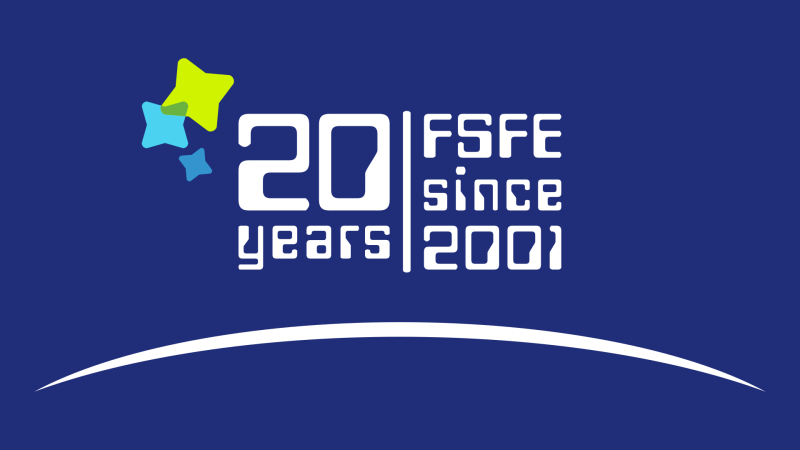
Turning 20 is a time when we like to take a breath and to look back on the road we have come, to reflect the milestones we have passed, the successes we have achieved, the stories we have written and the moments that brought us together and that we will always joyfully remember. In 2021 we want to give momentum to the FSFE and even more to our pan-European community, the community that has formed and always will form the shoulders that our movement relies on.
20 Years FSFE is meant to be a celebration of everyone who has accompanied us in the past or still does. Thank you for contributing your piece of the puzzle that shapes the FSFE and setting the foundation for the next decades' work of the movement for software freedom.
Support FSFE
 Wappen Kanton Uri und Bern
Wappen Kanton Uri und Bern
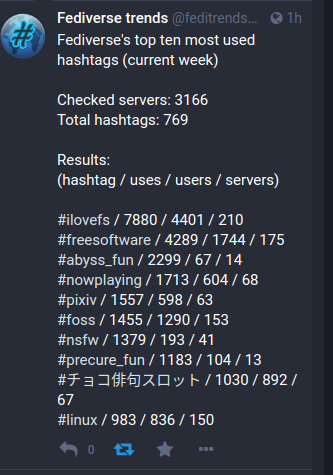

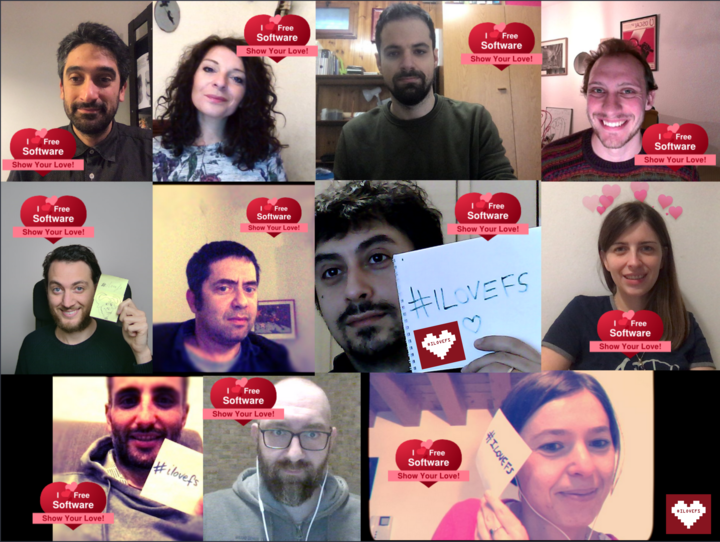
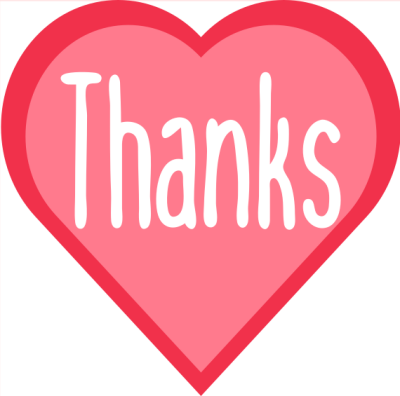
 Cory Docotrow at FSFE's Community Event
Cory Docotrow at FSFE's Community Event
 Reinhard Müller socialising at the General Assembly 2015.
Reinhard Müller socialising at the General Assembly 2015.
 For Reinhard Müller it is sometimes hard to decide what is the higher source of energy: spending some time at the beach or run a booth for the FSFE.
For Reinhard Müller it is sometimes hard to decide what is the higher source of energy: spending some time at the beach or run a booth for the FSFE.
 Reinhard Müller participating in his favorite campaign.
Reinhard Müller participating in his favorite campaign.
